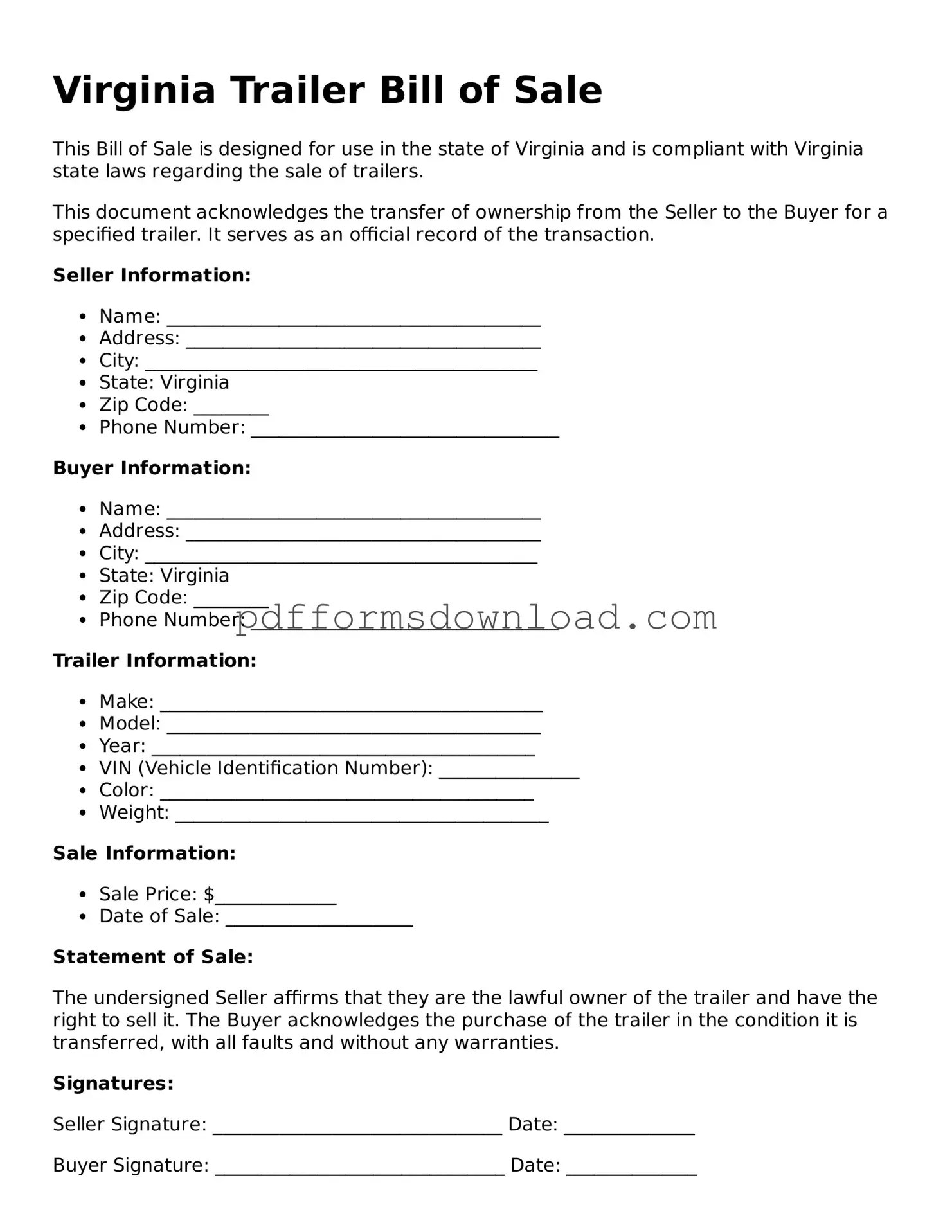What is a Virginia Trailer Bill of Sale form?
The Virginia Trailer Bill of Sale form is a legal document that serves as proof of the sale and transfer of ownership of a trailer from one party to another. This form includes essential details such as the names of the buyer and seller, the trailer's description, and the sale price. It is an important document for both parties involved in the transaction.
Why is a Bill of Sale necessary for trailers in Virginia?
A Bill of Sale is necessary in Virginia to establish legal ownership of the trailer. It provides a record of the transaction, which can be important for future reference, especially when registering the trailer with the Department of Motor Vehicles (DMV) or if any disputes arise regarding ownership.
What information is required on the Virginia Trailer Bill of Sale form?
The form typically requires the following information: the full names and addresses of both the buyer and seller, the trailer's identification number (VIN), make, model, year, and any other relevant details. Additionally, the sale price and the date of the transaction should be included.
Is the Virginia Trailer Bill of Sale form required to be notarized?
While notarization is not a legal requirement for the Virginia Trailer Bill of Sale, having the document notarized can provide an extra layer of authenticity. This can be beneficial if there are any disputes in the future or if the buyer needs to register the trailer in a different state.
Can I use a generic Bill of Sale for my trailer transaction?
Yes, a generic Bill of Sale can be used for a trailer transaction. However, it is advisable to use the specific Virginia Trailer Bill of Sale form to ensure that all necessary information is included and that it complies with state regulations. This can help prevent any issues during the registration process.
What should I do with the completed Bill of Sale?
Once the Bill of Sale is completed and signed by both parties, each party should retain a copy for their records. The seller may also need to provide a copy to the DMV when transferring the title, while the buyer will require it for registration purposes.
How does the Bill of Sale relate to the title transfer?
The Bill of Sale serves as a record of the transaction and is often required when applying for a title transfer at the DMV. It verifies that the buyer has purchased the trailer from the seller, which is essential for the title transfer process. The buyer will need both the Bill of Sale and the signed title to complete the registration.
What should I do if I lose my Bill of Sale?
If the Bill of Sale is lost, the parties involved may need to create a new Bill of Sale to document the transaction again. It is important to ensure that both parties agree on the details and sign the new document. Keeping multiple copies of important documents is advisable to avoid this situation.

